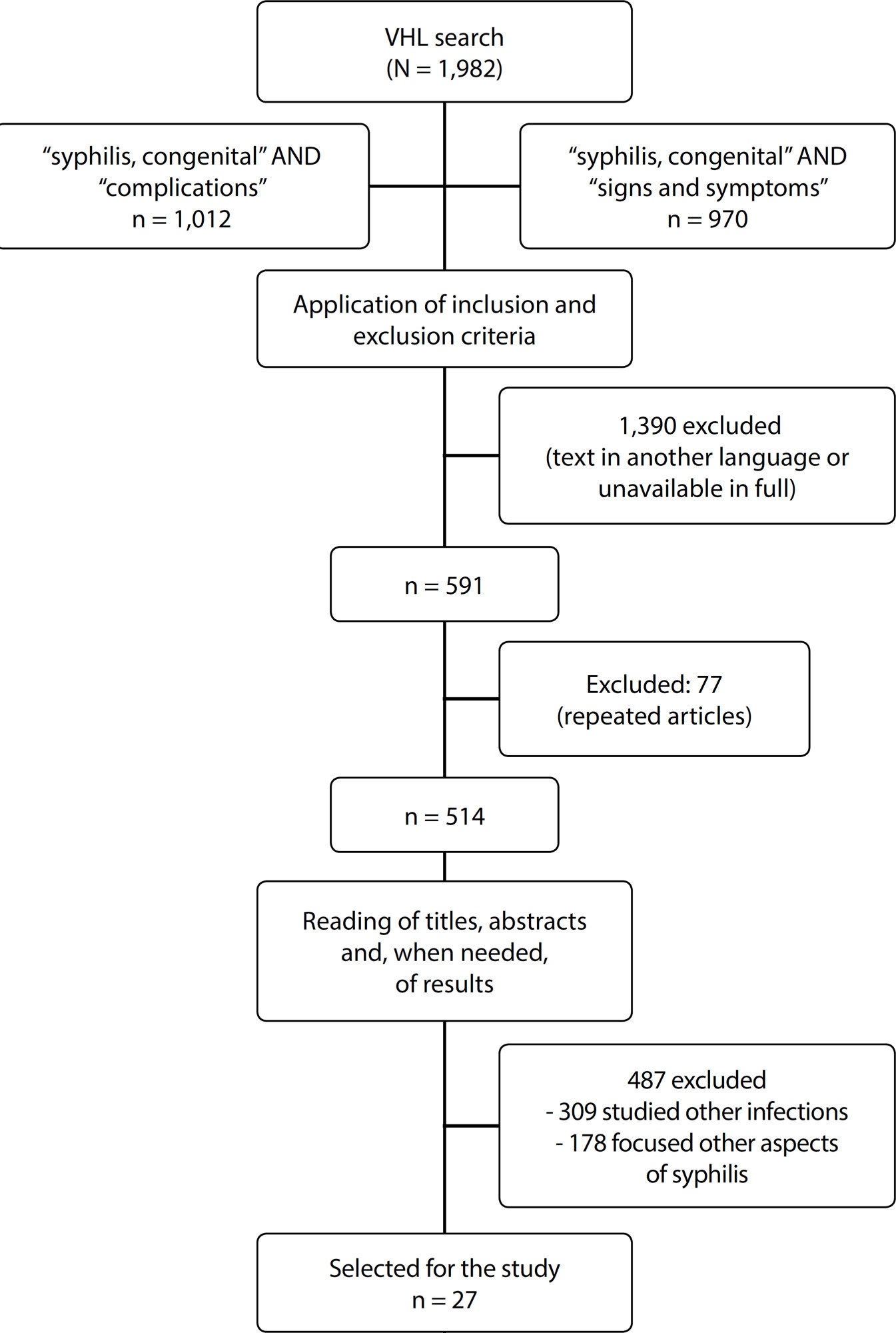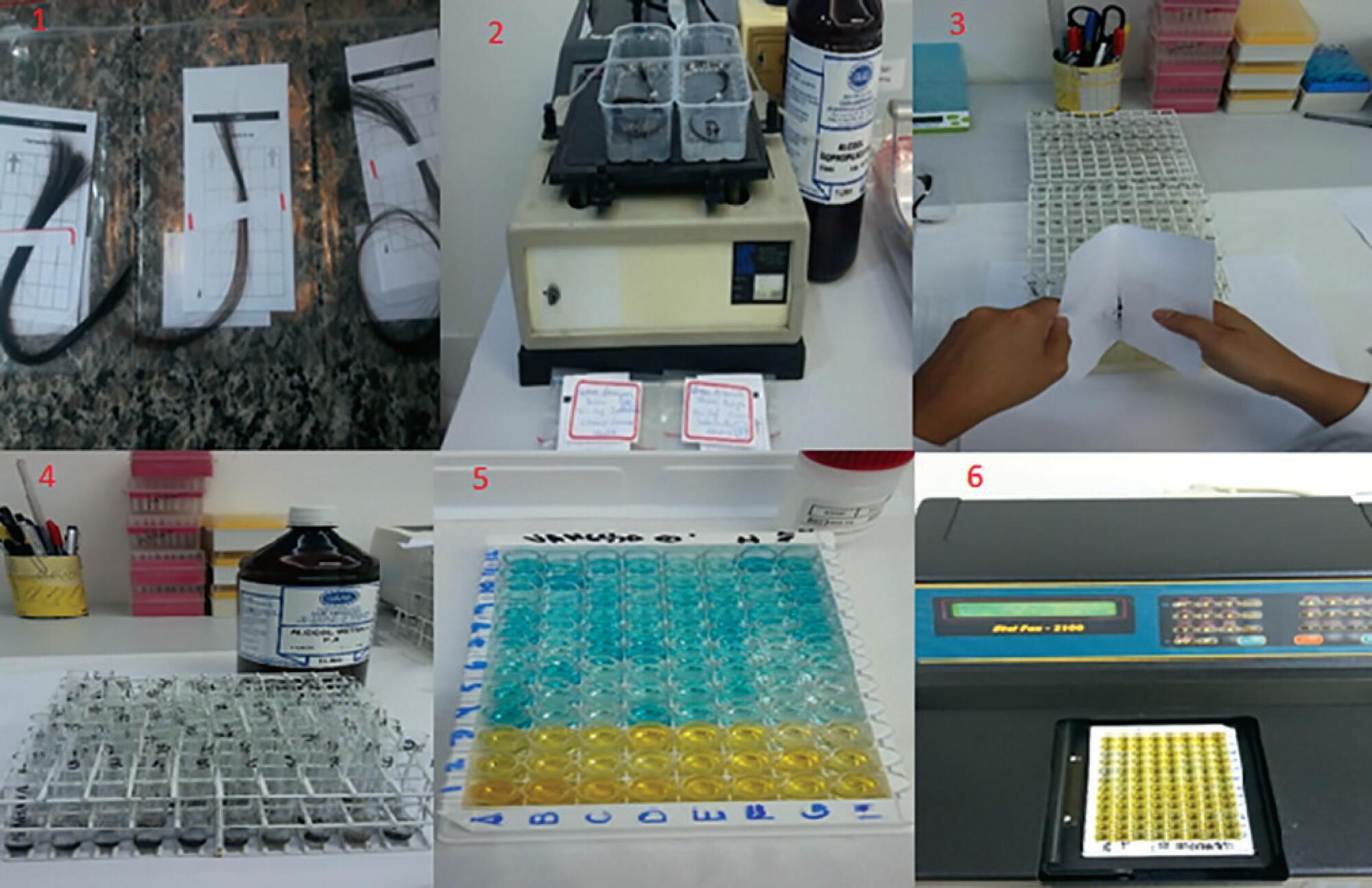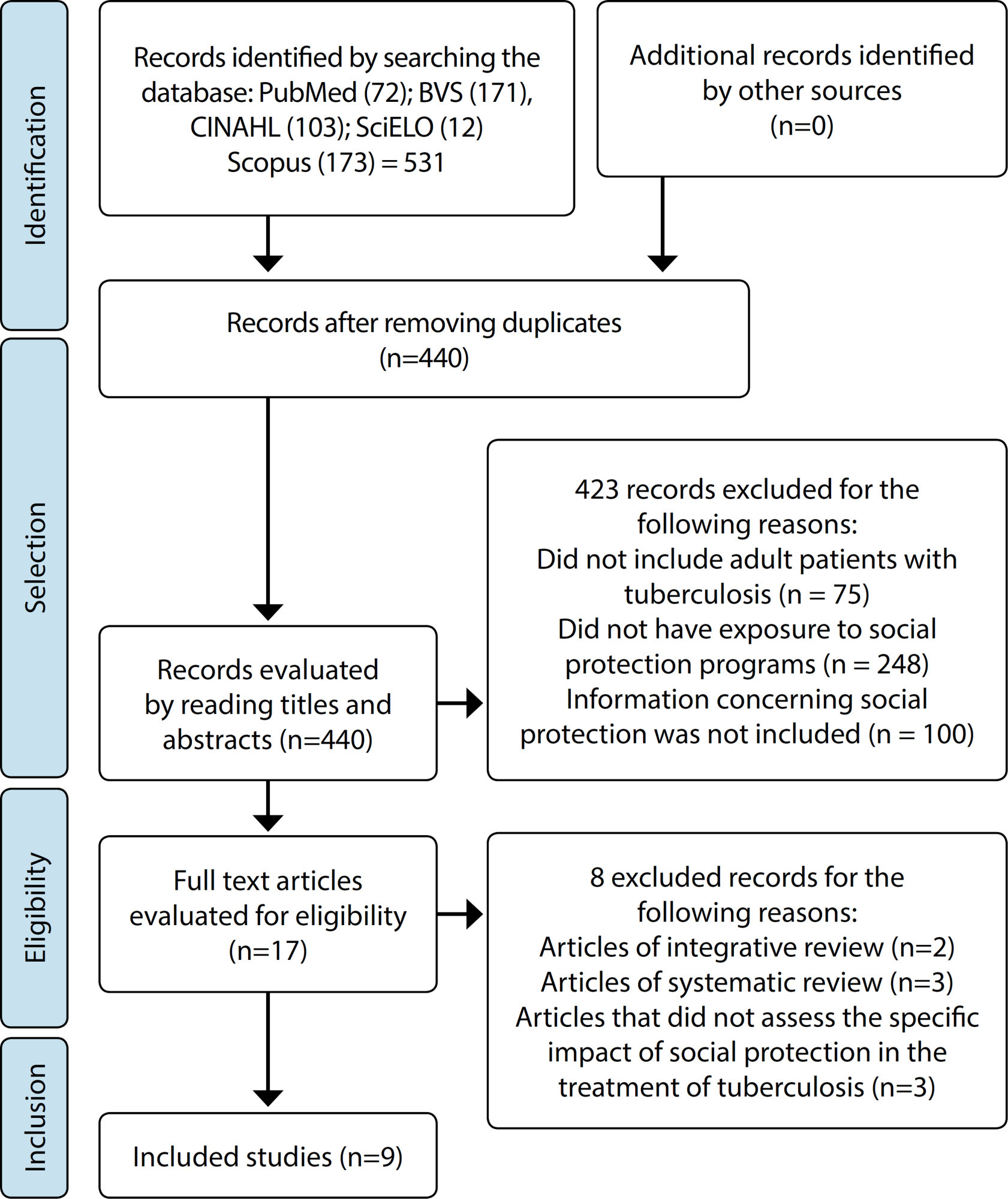-
RESEARCH01-01-2017
Therapeutic nursing care: transition in sexuality of the elderly caregiving spouse
Revista Brasileira de Enfermagem. 2017;70(4):673-681
Abstract
RESEARCHTherapeutic nursing care: transition in sexuality of the elderly caregiving spouse
Revista Brasileira de Enfermagem. 2017;70(4):673-681
DOI 10.1590/0034-7167-2016-0256
Views1See moreABSTRACT
Objective:
To understand the transitions experienced, and the conditions and expected response patterns to changes in sexuality of the spouse-caregiver of the elderly, during progression of the dementia process.
Method:
A qualitative research study, conducted at the neurogeriatric clinic between May of 2014 and May of 2015. An intensive, individual interview was administered to 12 elderly caregivers. Thematic content analysis was applied, using the theoretical model of Transition Theory.
Results:
Seven categories emerged, involving relationship and conjugal sexuality; disease repercussions; care and professional approach; attitudes, beliefs and social imagery of sexuality and care; family relationship and redefining of sexuality.
Final considerations:
Family development and marital life, the aspects of formation and development of sexuality, the specifics that involved living and caring for the other were understood, with successive events and changes influenced by old age, dementia, beliefs and social imagery.
-
01-01-2017
Fundamentals and practice of care in Gerontological Nursing
Revista Brasileira de Enfermagem. 2017;70(4):671-672
Abstract
Fundamentals and practice of care in Gerontological Nursing
Revista Brasileira de Enfermagem. 2017;70(4):671-672
DOI 10.1590/0034-7167.2017700401
Views0Intense social, economic, political, cultural, environmental, epidemiological, and demographical transformations, coupled with accelerated technological innovation, have significantly affected life in society, requiring people to reflect about the conceptions of human nature itself. This context of transformation has incentivized individuals to value technological advances and the construction of more autonomous, global, and unstable human relationships, outlining […]See more -
01-01-2017
Fundamentos e práticas do cuidar em Enfermagem Gerontológica
Revista Brasileira de Enfermagem. 2017;70(4):671-672
Abstract
Fundamentos e práticas do cuidar em Enfermagem Gerontológica
Revista Brasileira de Enfermagem. 2017;70(4):671-672
DOI 10.1590/0034-7167.2017700401
Views0As intensas transformações sociais, econômicas, políticas, culturais, ambientais, epidemiológicas e demográficas, em conjunto com as aceleradas inovações tecnológicas, têm afetado significativamente a vida em sociedade, exigindo que as pessoas reflitam sobre as próprias concepções da natureza humana. Esse contexto de transformações tem estimulado os indivíduos a valorizar os avanços tecnológicos e a construção de relações […]See more -
01-01-2017
The importance of empathy in health and nursing care
Revista Brasileira de Enfermagem. 2017;70(3):669-670
Abstract
The importance of empathy in health and nursing care
Revista Brasileira de Enfermagem. 2017;70(3):669-670
DOI 10.1590/0034-7167-2016-0032
Views0“In her book “Cultivating Empathy”(), Kathleen Stephany, psychologist and professor at the College of Health Sciences at Douglas College, writes about empathy, which she considers to be the basis of effective communication and one of the most important skills to be developed by human beings. Empathy is the ability to put oneself in the place […]See more -
REFLECTION01-01-2017
Clinical reasoning in nursing: teaching strategies and assessment tools
Revista Brasileira de Enfermagem. 2017;70(3):662-668
Abstract
REFLECTIONClinical reasoning in nursing: teaching strategies and assessment tools
Revista Brasileira de Enfermagem. 2017;70(3):662-668
DOI 10.1590/0034-7167-2016-0509
Views0See moreABSTRACT
Objective:
To present the concept and development of teaching strategies and the assessment tools regarding clinical reasoning for accurate practice.
Method:
This is a theoretical reflection based on scientific studies.
Results:
Comprehension of the essential concepts of the thought process and its articulation with the different teaching strategies and the assessment tools which has allowed presenting ways to improve the process of diagnostic or therapeutic clinical reasoning.
Conclusion:
The use of new strategies and assessment tools should be encouraged in order to contribute to the development of skills that lead to safe and effective decision making.

-
REFLECTION01-01-2017
Continuing education in health from the perspective of Augustine of Hippo
Revista Brasileira de Enfermagem. 2017;70(3):656-661
Abstract
REFLECTIONContinuing education in health from the perspective of Augustine of Hippo
Revista Brasileira de Enfermagem. 2017;70(3):656-661
DOI 10.1590/0034-7167-2016-0484
Views0See moreABSTRACT
Objective:
To reflect about continuing education from the perspective of Augustine of Hippo and his theories based on the construction of knowledge and the learning process.
Method:
This is a theoretical reflection study whose aim is to propose dimensions of analysis, emphasizing the history and challenges of continuing education. Such dimensions analyze the production of knowledge in Augustinian pedagogy, its historical aspects and its close relationship with lifelong education in health professions.
Results:
The results show the difficulty of continuing education to reach adequate importance in health services, and that of academia in appropriating the thoughts of renowned philosophers such as Augustine. This is a result of ignorance about the convergence of these principles and their relevance.
Final considerations:
Continuing education and Augustinian pedagogy walk hand in hand in terms of care, meeting the needs that originate from practice and that are reflected in it, challenging isolated knowledge and putting different areas of knowledge to work together.
-
REVIEW01-01-2017
Influence of hormonal contraceptives and the occurrence of stroke: integrative review
Revista Brasileira de Enfermagem. 2017;70(3):647-655
Abstract
REVIEWInfluence of hormonal contraceptives and the occurrence of stroke: integrative review
Revista Brasileira de Enfermagem. 2017;70(3):647-655
DOI 10.1590/0034-7167-2016-0056
Views0See moreABSTRACT
Objective:
To identify scientific evidence regarding the influence of hormonal contraceptive use and the occurrence of stroke.
Method:
Integrative review of the literature, through database search using the descriptors “contraceptive agents“, “contraceptive devices“, “contraceptives, Oral” and “Stroke”. Original studies in Portuguese, Spanish and English, published in full and available online were included. Studies that did not answer our guiding questions and duplicated studies were excluded.
Results:
Women using combined oral contraceptives have higher risk of stroke, even with a lower hormonal dosage and different types of progestogen, regardless of the duration of use. The use of contraceptives associated with smoking, hypertension, migraine, hypercholesterolemia, obesity and sedentary lifestyle increases the chance of stroke. Contraceptive patch and vaginal ring are associated to increased risk.
Conclusion:
Use of combined hormonal contraceptives, except for the injectable and the transdermal ones, increases the chance of occurrence of the event. Progestogen-only contraceptives were considered safe.
-
RESEARCH01-01-2017
Health Conditions and Memory Performance: a study with older adult women
Revista Brasileira de Enfermagem. 2017;70(3):640-646
Abstract
RESEARCHHealth Conditions and Memory Performance: a study with older adult women
Revista Brasileira de Enfermagem. 2017;70(3):640-646
DOI 10.1590/0034-7167-2016-0529
Views0See moreABSTRACT
Objective:
to verify the correlation between health condition and memory performance of older adult women in the community.
Method:
Analytical cross-sectional study developed with 28 older adult women living in Cuiabá-MT. They answered the Mini-Mental State Examination (MMSE), and a shortened Geriatric Depression Scale (GDS-15) to screen for dementia and depression symptoms. Memory skills were assessed through Rey Auditory Verbal Learning Test (RAVLT).
Results:
The mean age was 66.36 years and 75% of the participants had educational level higher than 7 years. The MMSE mean score was 28.45. The correlations found were: educational level and immediate memory (r = 0.49; p = 0.008); delayed recall and immediate memory (r = 0.71; p < 0.001); memory recognition and immediate memory (r = 0.43; p = 0.021) and recognition memory with delayed recall (r = 0.47; p = 0.012).
Conclusion:
High scores in the MMSE and a satisfactory health perception among the participants were evident. There was no correlation between memory performance and health perception.
-
REVIEW07-14-2021
Complications, clinical manifestations of congenital syphilis, and aspects related to its prevention: an integrative review
Revista Brasileira de Enfermagem. 2021;74(4):e20190318
Abstract
REVIEWComplications, clinical manifestations of congenital syphilis, and aspects related to its prevention: an integrative review
Revista Brasileira de Enfermagem. 2021;74(4):e20190318
DOI 10.1590/0034-7167-2019-0318
Views0See moreABSTRACT
Objectives:
to identify the scientific evidence about the clinical complications and manifestations of congenital syphilis and aspects related to its prevention.
Methods:
integrative review after a search in the databases LILACS and MEDLINE, carried out in March 2018, using the descriptors “syphilis, congenital”, “complications”, and “signs and symptoms”, leading to the selection of 27 researches.
Results:
the publications found were published from 1966 to 2017, and most of them were from Latin America and Africa. Negative outcomes, laboratory changes, and the clinical manifestations in congenital syphilis, whether early or delayed, were, respectively: low weight at birth, anemia, hepatosplenomegaly, and dental alterations. The lack of treatment of the pregnant women in the prenatal was the most common occasion in which the opportunity to prevent the complications of congenital syphilis was lost.
Conclusions:
the scientific evidences analyzed showed serious complications of congenital syphilis that could be avoided if early opportunities of diagnosing and treating the pregnant women are not lost during the prenatal.

-
ORIGINAL ARTICLE07-15-2020
Cultural adaptation of Infant Feeding Intentions Scale (IFI) for pregnant women in Brazil
Revista Brasileira de Enfermagem. 2020;73:e20190103
Abstract
ORIGINAL ARTICLECultural adaptation of Infant Feeding Intentions Scale (IFI) for pregnant women in Brazil
Revista Brasileira de Enfermagem. 2020;73:e20190103
DOI 10.1590/0034-7167-2019-0103
Views0See moreABSTRACT
Objectives:
to translate and culturally adapt the Infant Feeding Intentions Scale for pregnant women in Brazil.
Methods:
methodological study that included stages of translation, synthesis, face and content validation, back translation and semantic assessment. In the face and content and semantic validation stages, we used the Content Validity Index for individual items and for the overall scale for clarity and representativeness.
Results:
nine (100.0%) experts participated in face and content validation, and the average index obtained was 85.0% for representativeness. In the semantic assessment, performed with 31 (100.0%) pregnant women, the tool was considered clear, obtaining an average index of 91.0%.
Conclusions:
the Brazilian version of the scale was considered representative and clear. After assessing psychometric properties, the scale is expected to be valid and reliable to assess maternal intention to breastfeed exclusively until the infant’s six months of life in different Brazilian settings.
-
ORIGINAL ARTICLE03-24-2021
Development, validation and application of clinical simulation scenarios for assessment of stomatherapy specialists
Revista Brasileira de Enfermagem. 2021;74(1):e20200360
Abstract
ORIGINAL ARTICLEDevelopment, validation and application of clinical simulation scenarios for assessment of stomatherapy specialists
Revista Brasileira de Enfermagem. 2021;74(1):e20200360
DOI 10.1590/0034-7167-2020-0360
Views0See moreABSTRACT
Objectives:
to build and validate three clinical simulation scenarios and report the application with candidates for the specialist’s degree in stomatherapy.
Methods:
methodological study, building three scenarios and evaluation checklists; content validation with judges, using content validity index and Modified Kappa Coefficient; pre-test and application.
Results:
scenarios built based on nursing care for: 1. insufficiency and venous ulcer; 2. demarcation of intestinal stomia; and 3. Clean intermittent catheterization. In the content validation of the 24 items appreciated, 83%, 80%, and 92% were validated without change. In the pre-test, the objectives and checklists were adjusted. In the application, to standardize the evaluation, actors and evaluators were trained previously, and each candidate passed the three stations.
Conclusions:
scenarios built and with validated content, based on evidence and covering the three areas of stomatherapy. The pre-test allowed for adjustments in the scenarios, and the candidates achieved the expected objectives.
-
ORIGINAL ARTICLE12-07-2020
Management of home care by family caregivers to elderly after hospital discharge
Revista Brasileira de Enfermagem. 2020;73:e20200474
Abstract
ORIGINAL ARTICLEManagement of home care by family caregivers to elderly after hospital discharge
Revista Brasileira de Enfermagem. 2020;73:e20200474
DOI 10.1590/0034-7167-2020-0474
Views1See moreABSTRACT
Objective:
To understand the management of home care by family caregivers of dependent elderly people after hospital discharge.
Methods:
Qualitative research guided by hermeneutics-dialectic, anchored in the theory of communicative action. Data collection took place using a semi-structured interview with 11 participants.
Results:
Two categories were constructed: Management of the many types of care by the caregiver and the relationship between family caregiver and health care network. Care and management actions carried out routinely cause major changes in the family caregiver’s life. He/she does not recognize planning, home care periodicity or support in required procedures.
Final Considerations:
The management of home care for dependent elderly people after hospital discharge is complex, involving physical and emotional overloads, as well as difficulties in getting support from health services. The planning shared between the health team and the family since the discharge is required, and the better visibility of the role of primary care when the patient is assisted by a home care service.
-
07-09-2021
Sexuality is associated with the quality of life of the elderly!
Revista Brasileira de Enfermagem. 2021;74:e20201272
Abstract
Sexuality is associated with the quality of life of the elderly!
Revista Brasileira de Enfermagem. 2021;74:e20201272
DOI 10.1590/0034-7167-2020-1272
Views0See moreABSTRACT
Objective:
to analyze the association between sexuality and quality of life of Brazilian elderly residents in the community.
Methods:
a cross-sectional study conducted with 477 Brazilian elderly. The data were collected between August and October 2020. We used the EVASI and WHOQOL-OLD (World Health Organization Quality of Life). Data analysis was performed with Mann-Whitney, Spearman and Kruskal-Wallis correlation tests, with Bonferroni post-hoc application when necessary, considering a 95% confidence interval.
Results:
there was a statistical association between all dimensions of sexuality and the general quality of life of the elderly (p<0.05).
Conclusion:
the stimulation of sexuality can be configured as an innovative and holistic strategy focused on the promotion of health and active aging, since this study found the association between sexuality and the general quality of life of elderly people.
-
ORIGINAL ARTICLE06-01-2020
Stress and cortisol levels among members of the nursing team
Revista Brasileira de Enfermagem. 2020;73:e20180953
Abstract
ORIGINAL ARTICLEStress and cortisol levels among members of the nursing team
Revista Brasileira de Enfermagem. 2020;73:e20180953
DOI 10.1590/0034-7167-2018-0953
Views0See moreABSTRACT
Objective:
To analyze the characteristics of hospital nursing professionals with the presence of stress, and to associate this with capillary cortisol.
Method:
A cross-sectional, exploratory and correlational study, conducted in a hospital in São Paulo, Brazil. A total of 164 nursing professionals participated; the Perceived Stress Scale was administered, and hair samples were obtained for laboratory analysis. Data were entered into a Microsoft Excel spreadsheet (2010), and then into Microsoft Office and the R software, version 3.2.2.
Results:
High levels of capillary cortisol in 47% of participants suggest the presence of stress, but no statistical significance between cortisol and stress levels were found.
Conclusions:
Stress and capillary cortisol levels were indicative of stress among nursing professionals; however, no association between them was found, although the values found were above those recommended.

-
REVIEW06-18-2021
Impact of social protection programs on adults diagnosed with Tuberculosis: systematic review
Revista Brasileira de Enfermagem. 2021;74(3):e20190906
Abstract
REVIEWImpact of social protection programs on adults diagnosed with Tuberculosis: systematic review
Revista Brasileira de Enfermagem. 2021;74(3):e20190906
DOI 10.1590/0034-7167-2019-0906
Views0See moreABSTRACT
Objectives:
to analyze the impact of social protection programs on adults diagnosed with Tuberculosis.
Methods:
systematic review conducted by PRISMA, with registration PROSPERO CRD42019130884. The studies were identified in the VHL, PubMed, Scielo, CINAHL and Scopus databases, using the descriptors “Social Protection” and “Tuberculosis”, in combination with keywords combined with Boolean operators AND and OR. Observational and interventional studies published until October 23, 2019, in Portuguese, English and Spanish, were included.
Results:
social protection programs improve the treatment of tuberculosis, cure rates, adherence to treatment, the provision of services for the control of TB and reduce poverty.
Conclusions:
social protection programs have a positive impact on the treatment and control of people diagnosed with Tuberculosis.

-
ORIGINAL ARTICLE12-05-2019
Functional health literacy in hypertensive elders at primary health care
Revista Brasileira de Enfermagem. 2019;72:266-273
Abstract
ORIGINAL ARTICLEFunctional health literacy in hypertensive elders at primary health care
Revista Brasileira de Enfermagem. 2019;72:266-273
DOI 10.1590/0034-7167-2018-0897
Views0See moreABSTRACT
Objective:
to assess the relationship between inadequate functional health literacy and inadequate blood pressure control in older people with hypertension in Primary Health Care.
Method:
a cross-sectional study with sample calculated at 392. SAHLPA-18 tool was used for functional health literacy; blood pressure was measured; sociodemographic and clinical data were collected. Hierarchical logistic regression was used.
Results:
(high) inadequate blood pressure and (low) functional inadequate health literacy were present in 41.6% and 54.6% of the people, respectively. Factors associated with inadequate blood pressure were: inadequate functional health literacy, black-brown skin color, overweight-obesity, hypertension diagnosis time, non-adherence to exercise/diet, drug treatment. Schooling had no association with inadequate blood pressure
Conclusion:
hypertensive elderly people with inadequate health literacy were more likely to have inadequate blood pressure. Thus, health professionals need to value functional health literacy as a possible component to control blood pressure.
Search
Search in:
Nuvem de Tags
Adolescente (85) Atenção Primária à Saúde (239) COVID-19 (91) Criança (91) Cuidados de Enfermagem (269) Educação em Enfermagem (151) Educação em Saúde (139) Enfermagem (930) Enfermagem Pediátrica (86) Estudantes de Enfermagem (77) Estudos de Validação (131) Família (87) Idoso (208) Promoção da Saúde (99) Qualidade de Vida (104) Saúde do Trabalhador (86) Saúde Mental (145) Saúde Pública (82) Segurança do Paciente (150) Tecnologia Educacional (100)



